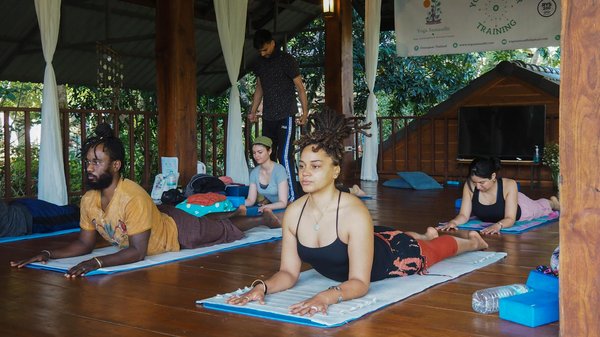Discover the power of natural health
Explore evidence-based information on herbal remedies, nutrition, and holistic wellness. HerbalDietShop brings you trusted insights to support your journey toward better health through nature's remedies.
What Our Readers Say
Join thousands who trust us for reliable natural health information
The pregnancy wellness guides helped me understand safe herbal options during my journey. The information is clear, well-researched, and easy to follow. I check the site weekly for new articles.
As a senior looking for natural alternatives, I appreciate the detailed articles on herbal remedies. The disease prevention guides are particularly helpful and backed by solid research.
The wellness section has transformed how I approach daily health. The articles are informative without being overwhelming, and I love the practical tips I can actually use.

Your Trusted Source for Natural Health Information
We deliver thoroughly researched articles on herbal remedies, nutrition, and wellness practices. Our editorial team carefully examines scientific studies and traditional wisdom to bring you balanced perspectives on natural health solutions.
- Evidence-based herbal health guides
- Expert-reviewed wellness articles
- Practical nutrition insights
- Updated health news and research
Latest articles
Our recent publications

How is the UK addressing the rise in childhood asthma?
The rise in childhood asthma has become a significant public health concern in the UK, affecting tho...

Transforming Healing: Cutting-Edge Robotic Surgery Techniques Accelerate Prostate Cancer Recovery
Robotic surgery for prostate cancer has transformed surgical methodology by integrating cutting-edge...

Uncovering the Impact of the Specific Carbohydrate Diet on Crohn's Disease Outcomes: A Comprehensive Analysis
The Specific Carbohydrate Diet (SCD) is a nutritional strategy designed to aid digestion and improve...

How Does the UK Health System Adapt to Emerging Health Trends?
Adaptation within the UK health system hinges on several core mechanisms that ensure responsiveness ...

Travel with pouches: your discreet companion for adventure
Travel pouches simplify packing by keeping essentials organized and easy to access. Whether protecti...

What are the strategies for reducing obesity rates in the UK?
In the UK, policy interventions form a cornerstone of the national approach to tackling obesity, foc...

What Are the Upcoming Health Trends in the UK?
The UK health trends in 2024 reveal a strong movement towards holistic, preventive approaches to wel...

How are lifestyle changes influencing UK health policies?
Lifestyle changes in the UK have significantly influenced population health trends over recent decad...

How Is Technology Revolutionizing Health Care in the UK?
The UK's healthcare system, particularly the National Health Service (NHS), has long been a cornerst...

What Emerging Trends Are Shaping the Future of UK Health Policy?
The UK's health policy landscape is undergoing significant transformations, driven by technological ...

A Deep Dive into the UK's Fetal Spinal Abnormality Screening: Unveiling Essential Guidelines
In prenatal care, fetal spinal abnormality screening plays a critical role. It serves as an indispen...

Understanding Prenatal Depression: Expert Guidance from UK Obstetricians on Providing Care and Support
Prenatal depression is a type of clinical depression that occurs during pregnancy. It can significan...

Unveiling the Power of Art Therapy: Stress Relief for Expectant Mothers in the UK
Art therapy is a therapeutic practice that integrates the creative process of art-making with psycho...

Find your path to wellness with a psychotherapist in London
London's fast-paced lifestyle has led to a 40% increase in mental health service demand since 2024, ...

How are UK health professionals contributing to public health awareness campaigns?
Understanding the roles of UK health professionals is essential to appreciate their impact on public...

Transforming Inflammatory Arthritis Diagnosis: Ultrasound's Impact on UK Rheumatology Practices
Inflammatory arthritis encompasses a group of conditions characterized by inflammation in the joints...

What training do UK health professionals undergo to handle emergency situations?
Emergency training in the UK healthcare system is structured around mandatory core healthcare emerge...

Ageless Vitality: The Comprehensive Safe Guide to Integrating High-Intensity Interval Training (HIIT) into Senior Fitness Routines
High-Intensity Interval Training, or HIIT, is renowned for its efficiency in boosting fitness levels...

Boosting Dexterity in UK Seniors 80+: Customized Workouts for Empowerment and Well-Being
Dexterity refers to the skillful use of hands and fingers, which plays a crucial role in maintaining...

Enhancing Senior Wellness: Uncover the Balance and Coordination Benefits of Tai Chi
Tai Chi, an ancient practice, is rooted in Chinese martial arts and focuses on gentle, flowing movem...

Discover Glowing Skin: How Daily Green Tea Benefits UK Women
Green tea offers a plethora of benefits for skin health, transforming a simple brew into an essentia...

Discover Remarkable Health Benefits of Regular Swimming for Seniors in the UK
Swimming offers numerous health benefits for seniors, enhancing both physical and mental health. It'...

Transform Your Remote Workspace: Essential Tips for UK Professionals to Enhance Posture and Boost Comfort
Creating a comfortable workspace is essential for boosting productivity and well-being in a remote s...

Crafting Your Personalized Yoga Routine: Proven Techniques to Soothe Back Pain
Back pain is a prevalent issue with various causes and types, each requiring a unique approach to re...

Essential tips for selecting the perfect water filtration system to remove contaminants effectively
Water contaminants are diverse and can broadly affect health and safety, necessitating the need for ...

Unlock your passion: the ultimate guide to natural supplements that enhance libido
Understanding the role of natural supplements in libido enhancement offers a refreshing perspective ...


